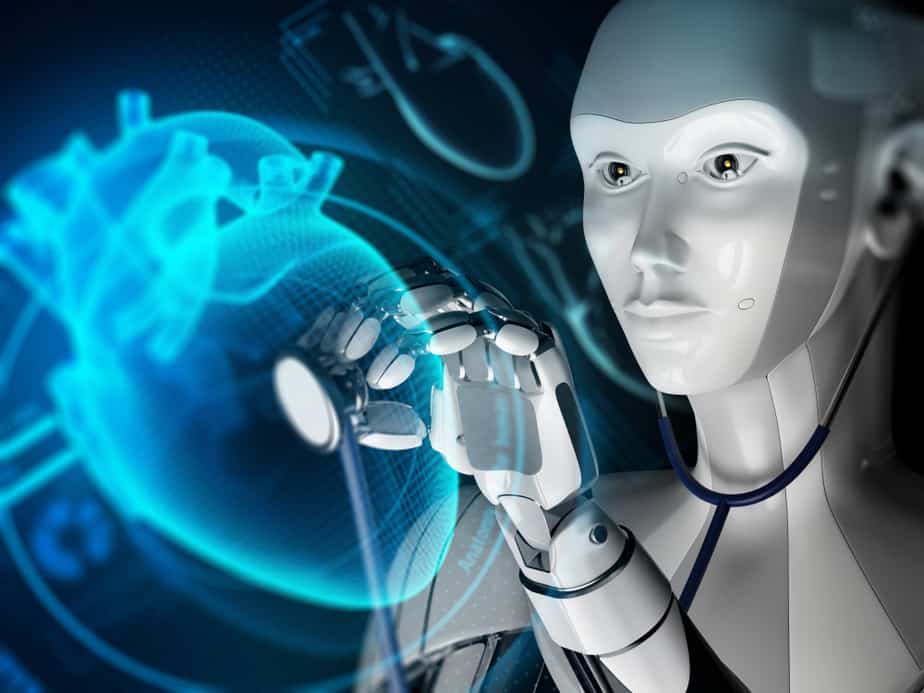It is highly unlikely that in your lifetime you will step into an exam room and be treated by a sentient robot doctor. Artificial intelligence is advancing at a rapid rate, and the healthcare industry is undeniably adopting AI solutions in various ways — but that doesn’t mean all healthcare providers’ jobs are at risk.
Rather, AI is a valuable tool for healthcare professionals to use to improve patient outcomes, workflow and more. Here are nine more realistic use cases of AI in healthcare, which you can look for the next time you go to your doctor’s office.
AI in Imaging Analysis
Deciphering medical images is easier said than done; to the average person, most medical scans look like strange gray blobs, and even trained professionals sometimes miss important health cues in images from x-rays, MRIs, PET scans and more. AI can be trained to extract certain data from images, which means they might be invaluable in detecting certain diseases using medical imaging.
AI in Medicine Development
Using convoluted neural networks — not unlike that used by autonomous vehicles — supercomputers have gained the ability to predict potential medicines for the treatment of various diseases. The AI works from a database of molecular structures and analyzes millions of experimental measurements. These predictions could become invaluable tools for creating new and even bespoke medicines of the future.
A real-world example of this exact use of AI occurred in 2015 during the West African Ebola virus outbreak. In less than a day, a supercomputer found a compound capable of binding to a protein to thwart the virus’s ability to penetrate living cells, which saved months or years of research into Ebola virus treatment.
AI in Unstructured Data Analysis
Unfortunately, patient health data and medical records are often stored as unstructured data, which makes it all but impossible for healthcare providers to understand and aggregate all relevant information. AI is an excellent tool for sifting through unstructured data to collect, store and standardize information, so AI could be invaluable to electronic health record platforms in the coming years.
AI in Disease Forecasting
Imaging aside, some diseases are all but impossible for clinicians to identify without months and months of testing, and if the disease advances quickly, patients will suffer. Fortunately, AI is already helping healthcare providers to recognize certain types of life-threatening disease, which allows for swift treatment. In one case, a machine learning tool called DeepMind Health helped doctors predict acute kidney injury up to 48 hours in advance, which gave providers time to alter treatment without long-term damage.
AI in Emergency Medicine
Emergency medicine requires fast decision making, and the wrong choice can have disastrous results. Thus, using AI trained to recognize specific urgent health events, emergency dispatchers and medical technicians can be more prepared to administer the right treatments at the right times. AI deployed in this way listens to the voice of the caller, background noise and relevant data in the conversation, like the patient’s medical history, to diagnose and determine treatment. This makes it much easier to administer life-saving medicine, especially in the crucial seconds of an emergency.
AI in Cancer Treatment
In cancer treatment, there is a fine line between administering enough to kill the cancer and administering too much and harming the patient. AI tools can be useful in managing chemotherapy drugs and radiation therapies, predicting tolerances and otherwise optimizing the treatment regimen for cancer patients to reduce unnecessary surgeries and keep patients on the road to remission.
AI in Gene Therapy
The human genome is unimaginably complex, and identifying the effects of individual genetic strings takes years of research. Gene therapy aims to interrupt genetic diseases with targeted modifications, and with the help of AI, effective therapies can be generated much faster to help suffering patients much sooner.
AI in Equity
Unfortunately, the healthcare industry is not known for being fair. Though many healthcare professionals strive to treat all patients equally, systems are often designed to favor those patients who already have privilege — like wealth or skin color. As a result, many millions of patients can get left behind. It is critical that any AI solutions used to improve the healthcare industry do not perpetuate ingrained inequality, so AI tools designed to enhance equity could be invaluable.
AI is likely to appear in healthcare sooner than you expect, but it might not look like the movies have led you to believe. Unless you work in healthcare, you might not even know that AI is being used behind the scenes to improve patient outcomes.
